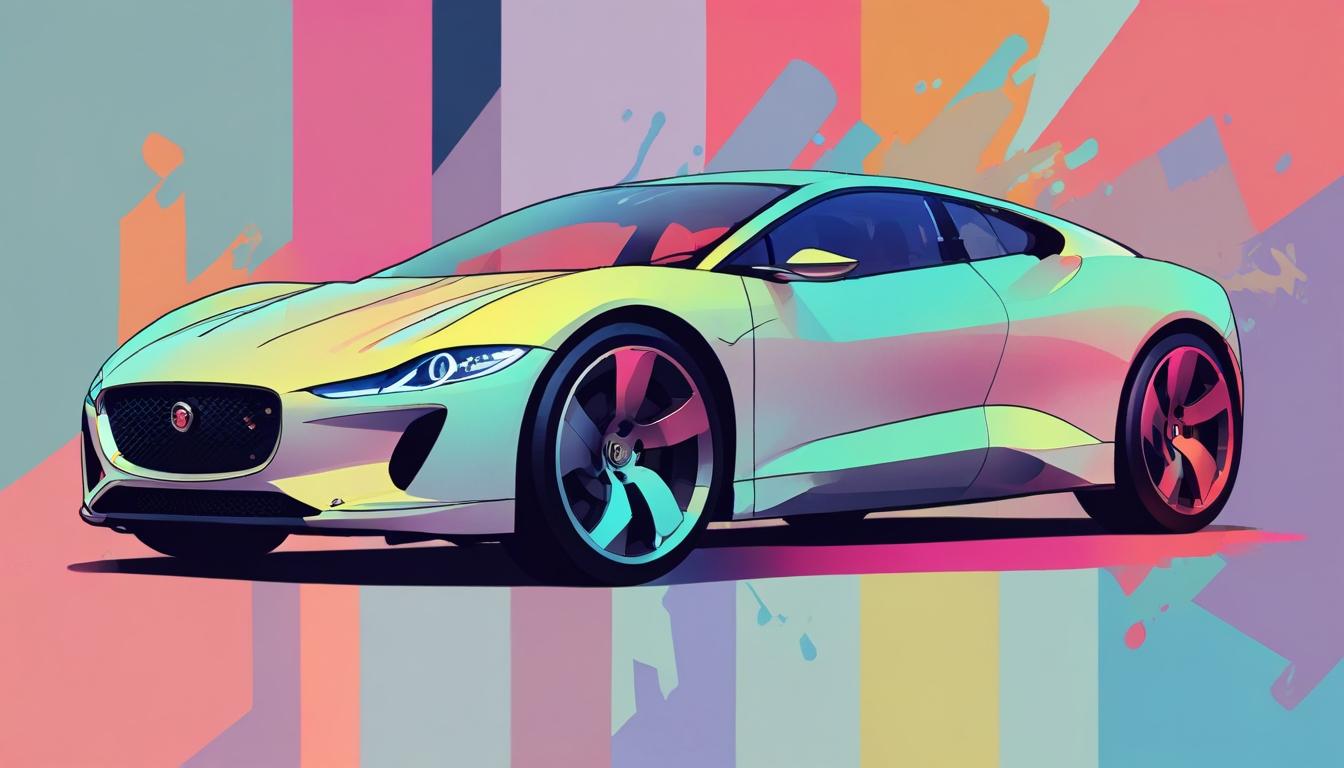Jaguar Land Rover has found itself at the epicentre of a heated backlash following its recent rebranding efforts, as the automotive giant seeks to transition towards an all-electric future. The company is now in the process of reviewing its global creative account in light of widespread criticism directed at its recent advertising initiatives.
The rebrand, announced last December, has been characterized as "the biggest change in Jaguar’s history," but the reception has been far from favourable. Critiques have centred on a promotional video that eschewed traditional elements such as the iconic leaping-cat logo and any representation of Jaguar vehicles. Instead, the advertisement featured a surreal landscape populated by models clad in vibrant attire, as well as abstract visuals, which many feel starkly diverged from the brand's luxury heritage. Rawdon Glover, Jaguar's managing director, has defended this new direction, stating that it’s crucial for the brand to stand out amidst traditional automotive marketing tropes. "If we play in the same way that everybody else does, we'll just get drowned out," he remarked to the Financial Times.
Despite Glover's assertion that the advertisement garnered over 160 million views online, the commercial has drawn scorn from both the public and industry figures, including high-profile critiques from Elon Musk and Nigel Farage. Musk, in an observation on social media, bluntly questioned whether Jaguar still sells cars, while Farage condemned the rebranding as something that could lead to the company’s downfall. Such strident reactions highlight a segment of consumers who feel alienated from the brand's current trajectory.
Indeed, the fallout from this strategic pivot has been palpable in Jaguar's sales figures. Reports indicate a staggering decline of more than 25% in car sales in the UK for 2024, with Jaguar moving just 33,320 units, a significant drop from 61,661 in 2022 and a far cry from the 161,601 sold in 2019. This decline is particularly poignant against the backdrop of Jaguar Land Rover's ongoing transition to electric vehicles, a strategy that aims to position it as a high-end brand, focused on ultra-wealthy consumers willing to pay over £100,000 for luxury electric sedans.
Moreover, reactions to the rebranding strategy have not been uniformly negative. Observers note that while it deviates from Jaguar’s established identity, it reflects a broader trend within the automotive industry towards more modern, socially-conscious branding methods aimed at younger demographics. Dr Martina Olbert, founder and CEO of Meaning, noted that Jaguar's approach appears to align with a desire to be "super cool" but cautioned that such an extravagantly visual method might fail in substance.
This shift comes as Jaguar Land Rover is simultaneously grappling with operational challenges, having halted the release of new models until 2026. This pause is viewed as a gamble—one that could limit the brand's market presence and further exacerbate the decline in sales during this critical transitional phase. While the company hopes to recover and reclaim its status as an innovator in luxury automobiles, the road ahead appears fraught with challenges.
Jaguar’s broader strategy, termed 'Project Roar,' seeks not only to redefine the brand but to navigate the complexities of modern consumer expectations and global market trends. As the automotive landscape rapidly evolves, Jaguar Land Rover will need to reconcile its rich legacy with contemporary demands, ensuring that its ambitious plans for electric vehicles do not alienate its enduring customer base.
Reference Map
- Paragraph 1: [1]
- Paragraph 2: [1], [2]
- Paragraph 3: [1], [3]
- Paragraph 4: [1], [2], [4]
- Paragraph 5: [6], [5]
- Paragraph 6: [6], [7]
- Paragraph 7: [4], [5]
Source: Noah Wire Services
